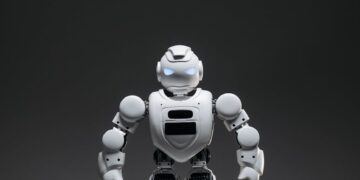The tech industry, historically characterized by rapid change, is currently experiencing a profound metamorphosis driven by the unprecedented, accelerating pace of artificial intelligence innovation. This isn’t merely another technological cycle; it’s a fundamental paradigm shift that is forcing every company, from nimble startups to established giants, to confront existential questions. The relentless march of AI is compelling organizations to meticulously re-evaluate their core business models, scrutinize their product development pipelines, and critically redefine their future trajectories. Failing to adapt isn’t an option; it’s a direct path to obsolescence in a landscape where AI is rapidly becoming the ultimate differentiator, reshaping competitive dynamics and dictating the very definition of success.
The AI imperative: From optimization to transformation
For years, AI was largely viewed as an optimization tool, a way to enhance existing products or streamline internal processes. Companies experimented with machine learning for personalized recommendations, improved search results, or automated customer service. However, the recent explosion in generative AI capabilities, exemplified by large language models and advanced image synthesis, has dramatically altered this perception. AI has transcended its role as a mere feature; it has become an existential imperative. Tech companies are no longer asking if they should integrate AI, but rather how quickly and deeply they can fundamentally embed it into the very fabric of their offerings and operations. This shift demands a proactive stance, where AI is not an afterthought but the central tenet around which new strategies are built. The speed at which new models emerge and capabilities evolve means that yesterday’s cutting-edge AI could be commonplace—or even outdated—tomorrow, pressuring companies to stay constantly vigilant and agile in their adoption and application.
Product development reimagined: The AI-first paradigm
The traditional product development lifecycle, often characterized by lengthy planning phases and incremental updates, is proving inadequate in the age of accelerated AI. Companies are now being forced to adopt an “AI-first” mindset, where the intelligence layer is considered from conception, not bolted on later. This involves rethinking everything from user interface design, which must accommodate dynamic AI interactions, to the underlying data infrastructure required to train and deploy sophisticated models. The focus has shifted from simply adding features to enabling intelligent, adaptive, and personalized experiences that learn and evolve with the user. This necessitates rapid prototyping, continuous integration of new AI models, and an unprecedented emphasis on data governance and ethical AI considerations. Products are no longer static tools but become dynamic partners, capable of anticipating needs and generating solutions, effectively redefining the very essence of what a “product” can be.
Strategic reorientation: Redefining value and competition
The disruptive force of AI is compelling tech companies to fundamentally reassess their strategic positioning and competitive advantages. What once constituted a unique selling proposition may now be easily replicable by AI or rendered obsolete by AI-powered alternatives. This necessitates a deep dive into identifying core competencies that are defensible in an AI-driven world, such as proprietary data sets, unique model architectures, or specialized domain expertise that can enhance AI capabilities. Companies are finding themselves in a race to acquire or develop these critical assets. Furthermore, the competitive landscape is constantly being redrawn, with traditional rivals now facing new threats from AI-native startups that can leverage advanced models with minimal overhead. This often leads to strategic partnerships, aggressive M&A activities focused on AI talent and technology, or a complete pivot in market focus. The table below illustrates some of these shifts:
| Strategic area | Pre-AI focus | Post-AI focus |
|---|---|---|
| Product core | Feature parity, incremental improvements | AI-driven intelligence, predictive capabilities, generative output |
| Competitive edge | Market share, cost efficiency, network effects | Data advantage, AI model superiority, speed of iteration, ethical AI |
| Talent needs | Software engineers, cloud architects, product managers | ML engineers, data scientists, prompt engineers, AI ethicists, human-AI interaction designers |
| Time-to-market | Agile sprints, quarterly releases | Continuous deployment, real-time model updates, iterative model training |
| Customer value | Problem-solving, utility, convenience | Anticipatory intelligence, personalized automation, creative assistance |
Cultivating an AI-ready organization: Talent, culture, and agility
Beyond technology and strategy, the relentless pace of AI innovation demands a profound transformation of an organization’s internal structure and culture. The skill sets required are rapidly evolving, necessitating significant investment in upskilling existing employees and aggressively recruiting new talent with expertise in machine learning, data science, and AI ethics. Companies must foster a culture of continuous learning, experimentation, and adaptability, where failure is seen as a learning opportunity and cross-functional collaboration is paramount. The traditional silos between engineering, product, and research must dissolve to enable seamless integration of AI into every aspect of the business. Leadership must champion this transformation, advocating for iterative development cycles, embracing responsible AI principles, and empowering teams to explore novel applications of AI, even if they challenge established norms. Without this cultural shift, even the most advanced AI technologies will fail to yield their full transformative potential.
The accelerating pace of AI innovation has irrevocably altered the landscape for every tech company, demanding a fundamental re-evaluation of strategy, product development, and the very definition of future success. We’ve seen how AI has transitioned from an optional enhancement to an existential imperative, forcing businesses to adopt an “AI-first” mindset in product design, where intelligence is core. This shift also necessitates a profound strategic reorientation, where competitive advantages are redefined by proprietary data, model superiority, and the speed of AI integration. Finally, an organizational transformation is crucial, emphasizing new talent, a culture of continuous learning, and unparalleled agility. Companies that embrace these shifts, prioritizing adaptability and intelligent integration, will not merely survive but thrive, shaping the next era of technological progress. Those that hesitate risk being left behind in a world increasingly orchestrated by artificial intelligence.


















